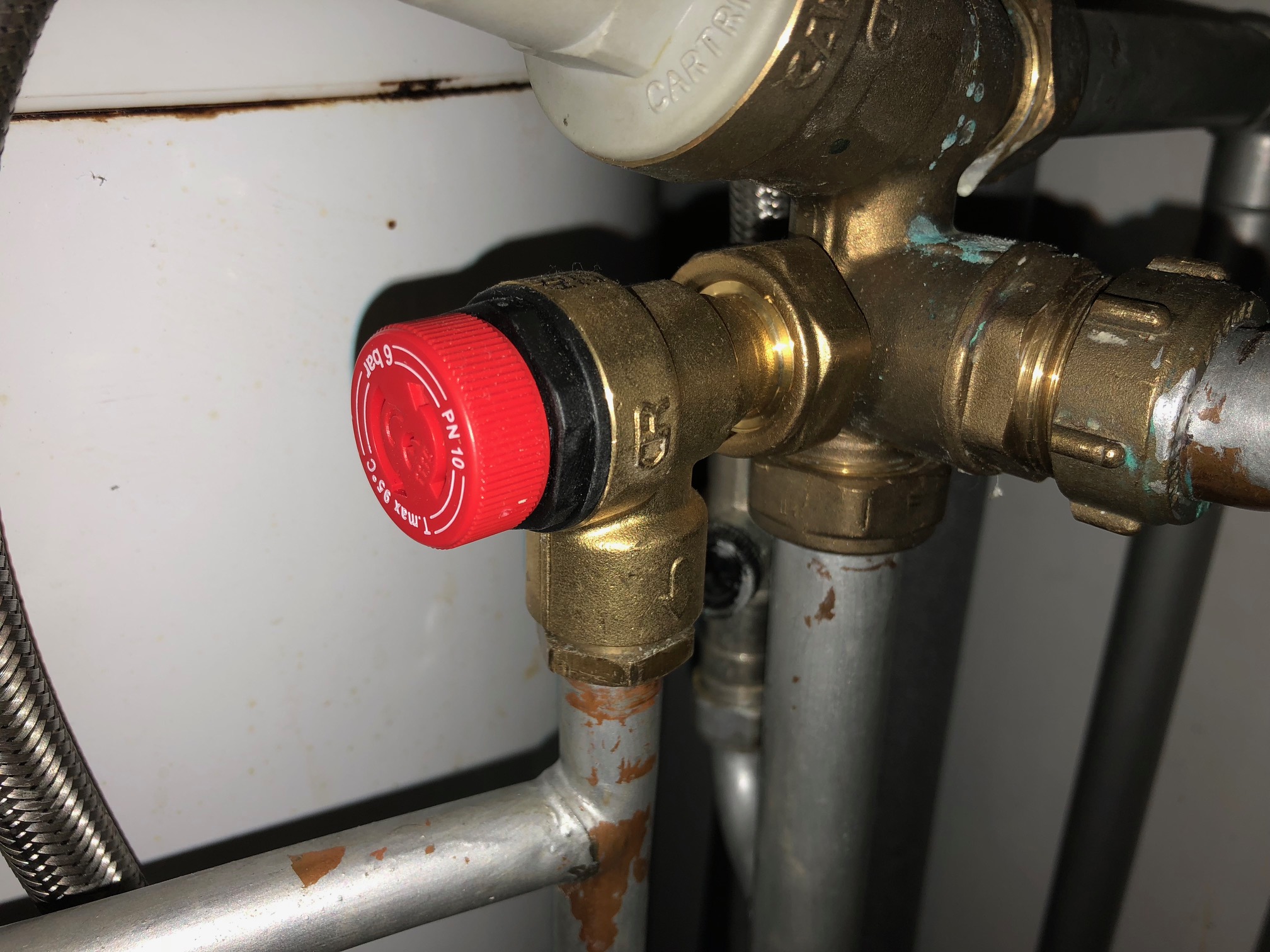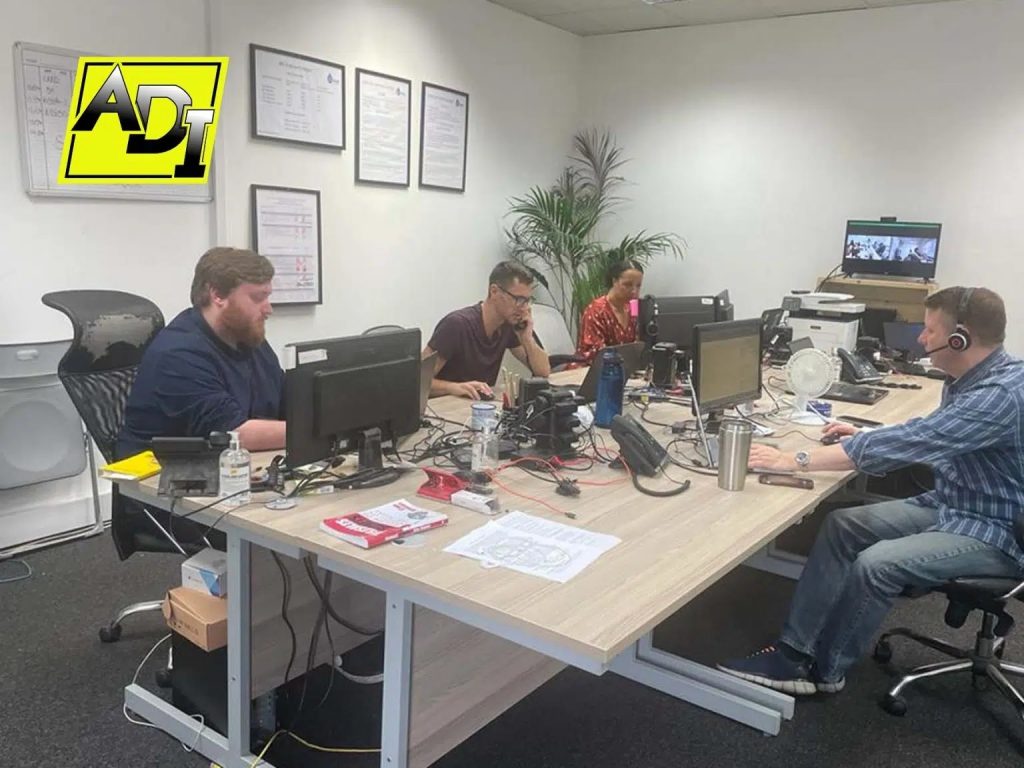Leaking Pressure Relief Valve (PRV)?
A leaking PRV can lead to water damage, energy waste, and safety hazards.
Pressure Relief Valves (PRVs) are crucial components in maintaining the safety and efficiency of a central heating system. PRV’s are designed to release water and reduce pressure, thus preventing potential damage.
What does a Pressure Relief Valve Do?
A Pressure Relief Valve regulates pressure to prevent damage to pipes, the boiler, and the entire central heating system. The PRV is connected to a discharge pipe that directs the expelled water safely away.
Corrosion, material degradation, or high pressure can lead to a malfunctioning PRV, often indicated by leaking water or a hiss sound.

Identifying a Leak in Your PRV
Look for Visible Signs | Check around the PRV foLr any signs of water leakage, such as dampness, puddles, or a continuous drip or spray. Corrosion or rust near the valve area can also indicate a long term problem. | ||||||||||||||||||||||||||||||||||||||||||||||||||||||||||||||||||||||||||||||||||||||||||||||||||
Listen for Sounds | A hissing or gurgling sound can often accompany a leak, especially when the system is under high pressure. | ||||||||||||||||||||||||||||||||||||||||||||||||||||||||||||||||||||||||||||||||||||||||||||||||||
Check the Pressure Gauge | An unusually high or fluctuating reading on your system’s pressure gauge can suggest a malfunctioning PRV. | ||||||||||||||||||||||||||||||||||||||||||||||||||||||||||||||||||||||||||||||||||||||||||||||||||
Causes of PRV Leaks
HIGH PRESSURE IN THE SYSTEM | The PRV is designed to release water when pressure exceeds a safe threshold. The PRV will leak if there is continuous high pressure in the system. | ||||||||||||||||||||||||||||||||||||||||||||||||||||||||||||||||||||||||||||||||||||||||||||||||||
CORROSION & WEAR | Over time the PRV valve and its components can corrode or wear down, especially in systems with poor water quality or those that are aging. Corrosion can lead to a fault or create small gaps where water can escape. | ||||||||||||||||||||||||||||||||||||||||||||||||||||||||||||||||||||||||||||||||||||||||||||||||||
DEBRIS OR SEDIMENT BUILD UP | Sediment, scaling, or debris in the system can obstruct the PRV, preventing it from closing fully and leading to leaks. | ||||||||||||||||||||||||||||||||||||||||||||||||||||||||||||||||||||||||||||||||||||||||||||||||||
FAULTY VALVE OR DAMAGED PARTS | A faulty valve may not operate correctly, leading to continuous leaking. Damage to the valve, such as cracks or broken components, can also cause leaks. | ||||||||||||||||||||||||||||||||||||||||||||||||||||||||||||||||||||||||||||||||||||||||||||||||||
POOR INSTALLATION | If the PRV is not installed correctly, it may not seal properly or might be subjected to undue stress, leading to leaks. | ||||||||||||||||||||||||||||||||||||||||||||||||||||||||||||||||||||||||||||||||||||||||||||||||||
AGING | External environmental factors such as temperature fluctuations or the age of the PRV can affect its integrity and lead to leaks. | ||||||||||||||||||||||||||||||||||||||||||||||||||||||||||||||||||||||||||||||||||||||||||||||||||
I Have A Leaking PRV – What Next?
If you notice that the PRV leaks water, especially during water heating, it likely indicates that your expansion vessel is faulty or requires repressurization.
A properly functioning expansion vessel accommodates water influx as pressure rises and releases it as the temperature, and consequently the pressure, drops.
A qualified plumber can adjust the expansion vessel to the correct pressure.
My PRV isn’t leaking, What else could be?
You may have a central heating leak if your Pressure Relief Valve is not leaking. A slow leak in your heating system could be the cause of your boiler losing pressure.
Our heating leak experts are able to detect leaks on central heating systems using non-destructive techniques including Thermal Imaging, Acoustic Listening Devices and Tracer Gases.
Call us now on 0800 731 3843 if you suspect you have a central heating leak








